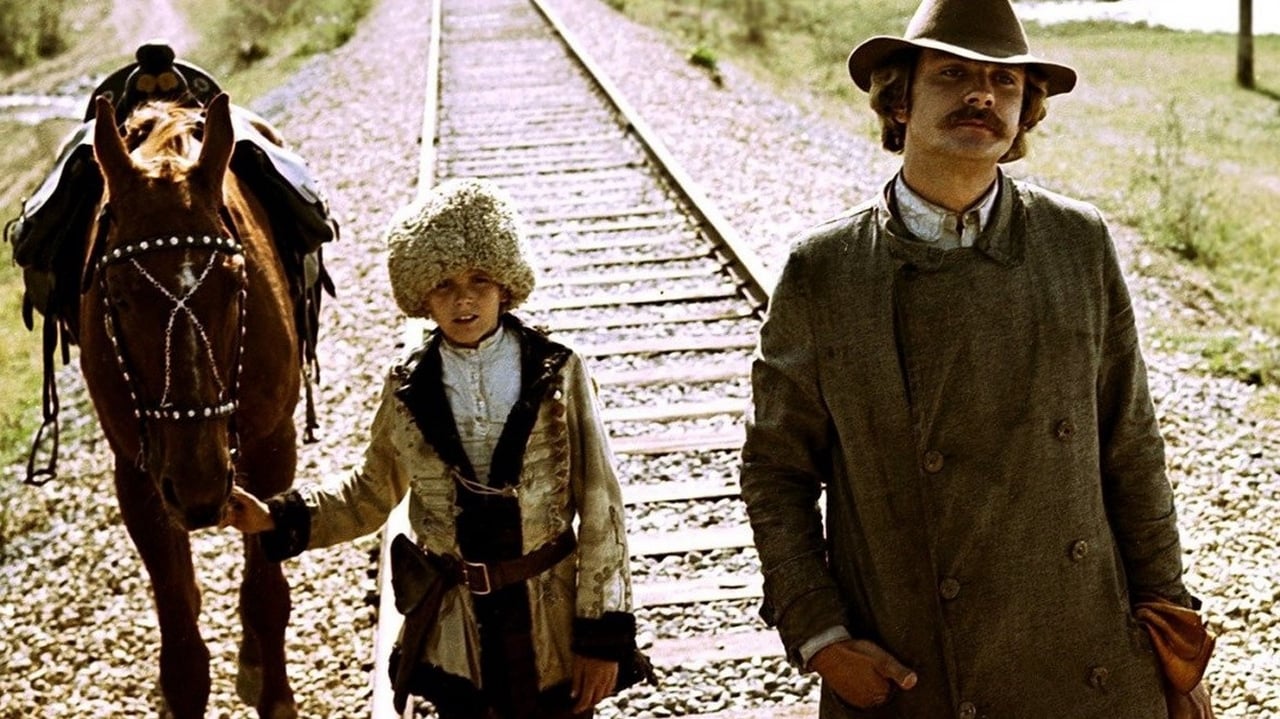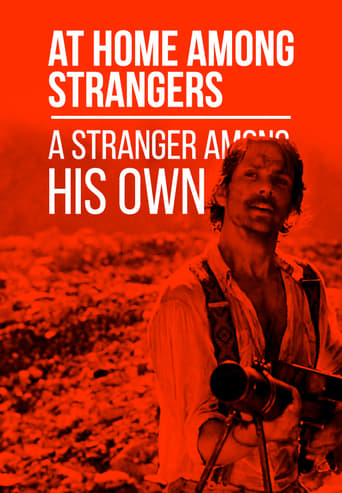

The movie's neither hopeful in contrived ways, nor hopeless in different contrived ways. Somehow it manages to be wonderful
... View MoreStory: It's very simple but honestly that is fine.
... View MoreThere's a more than satisfactory amount of boom-boom in the movie's trim running time.
... View MoreMostly, the movie is committed to the value of a good time.
... View MoreNikita Mikhalkov's 1974 At Home among Strangers, a Stranger Among his Own was a truly enjoyable "Eastern," a Soviet parallel to the American "Western." It did a great job in glorifying the Socialist Revolution and its ideology, while at the same time preserving the advantageous, "badass," gun-slinging attitude that audiences loved in the Western. I feel like contemporary viewers of this film would have savored it—a dramatized, heroic account of Soviet values set in the "wild east" would seem like the perfect soothing remedy for a disillusioned Soviet citizen during Brezhnev's period of stagnation.Our Soviet western hero is Shilov, who was tasked with defending a large Cheka shipment of gold for the starving citizens in Moscow following the Russian Civil War. Naturally, the plan is quickly ruined as assassins kill everyone on board the train carrying the gold to steal it, drug Shilov, and let him loose in the town street, hence framing him for being the inside man for giving up the gold. As Shilov sets out to recover the gold and clear his name, the plot further thickens as the assassins get killed and bandits take the gold! The leader of the assassins, Lemke, lived however, and joined up with the bandits to try and discover where their leader, Brylov, was taking the gold. Shilov ends up killing Brylov and recovering the gold, and denies all of Lemke's pleads and temptations to share it with him and escape. Shilov maintained adamant in his Socialist position of giving up the gold, claiming that "even God taught us to share."All of this activity is surrounded by recurring themes of train robbery, horseback chasing, rafting and mountainside firefights. Even the soundtrack emphasizes moments of male camaraderie as Shilov's name is mentioned among his Civil War friends with majestic trumpet solos. As Shilov returns to his wartime friends with the gold, they rush to him, barely holding back tears as they greet their "western Soviet" hero. The film shed some positive, adventurous light upon the Soviet values of collectivization and honor over corruption and private enterprise.
... View MoreAt Home Among Strangers, a Stranger Among his Own is a rollicking action and adventure film that nonetheless calls attention to deeply important themes in Russian history. Set directly after the Russian Civil War, the film looks and feels very much like an American Western, embodying motifs of greed, justice, honor, and betrayal. In the film, a shipment of gold being sent to Moscow for the purchase of food supplies is intercepted by a band of train robbers, who are themselves infiltrated by a Red veteran–accused of trying to steal the gold–out to see justice done and clear his name, and by the murderous villain who framed him. Meanwhile, the local Cheka attempts to solve the crime, leading to numerous chases and gunfights. Along with the action and suspense that drive the film's plot, At Home Among Strangers explores the challenges in Russia following the Red victory over the Whites. After the war, an entirely new struggle of rebuilding a divided country begins. The film showcases victorious but overwhelmed reds, defeated but still greedy Whites, and bandits surviving however they can, bearing no political or ideological affiliation. The chairman of the Cheka embodies the struggle of uniting a country made up of such disparate factions; he struggles to do everything that must be done to transition from wartime to socialist peace. Likewise, a former cavalry officer grapples with settling finances, doing his part for peacetime when the battlefield is all he knows. Finally, demonstrating the fundamental divisions within Russian society, the hero Shilov struggles to retain the trust of his fellows, who know that his brother fought for the White army. Stylistically, this "ostern" pays homage not only to the popular American cinema it emulates, but also to previous triumphs of Russian film. A scene in which machine guns are fired from atop cliffs at the water below recalls the final minutes of the Vasilyev Brothers' Chapaev, and some scenes in the movie, like flashes of comrades-in-arms celebrating their victory amid feelings of betrayal, and an image of a wagon tumbling down a hill as the exhausted Shilov makes his way down a similar decline to his waiting comrades, are unmistakable nods to the montage style made famous by Eisenstein and his contemporaries. When the gold is finally returned and old friends regain their mutual trust, shots of the men celebrating the end of the war are interspersed with those of them celebrating the safe return of their valuables. Ironically, their glee over the gold is matched only by the joy they had taken in their victory over such material possessions, and the superimposition serves to remind audiences that now, even amid all their struggles, wealth and camaraderie go hand in hand, and that hard-earned gains are for the benefit of all.
... View MoreThis is a great movie. It reminds me a little bit of "Beloye Solntse Pustini" or in English "The White Sun of the Desert", same type of the 1920's action movie. I think this movie has some of the best cinematography that I have ever seen in any film. This is a very easy going-enjoyable-smart action film. Mikhalkov did a great job.
... View MoreShould really be recognized as a Western classic, or at least world's best "Eastern" - Mikhalkov follows the rules of the genre impeccably, easily weaving in 1920's Russia setting, revolutionary romanticism and "cool" charismatic bad guys, a rare thing in Soviet cinema. Cast is superb - probably the best combination of young actors of the decade, including Mikhalkov himself as Yesaul.
... View More